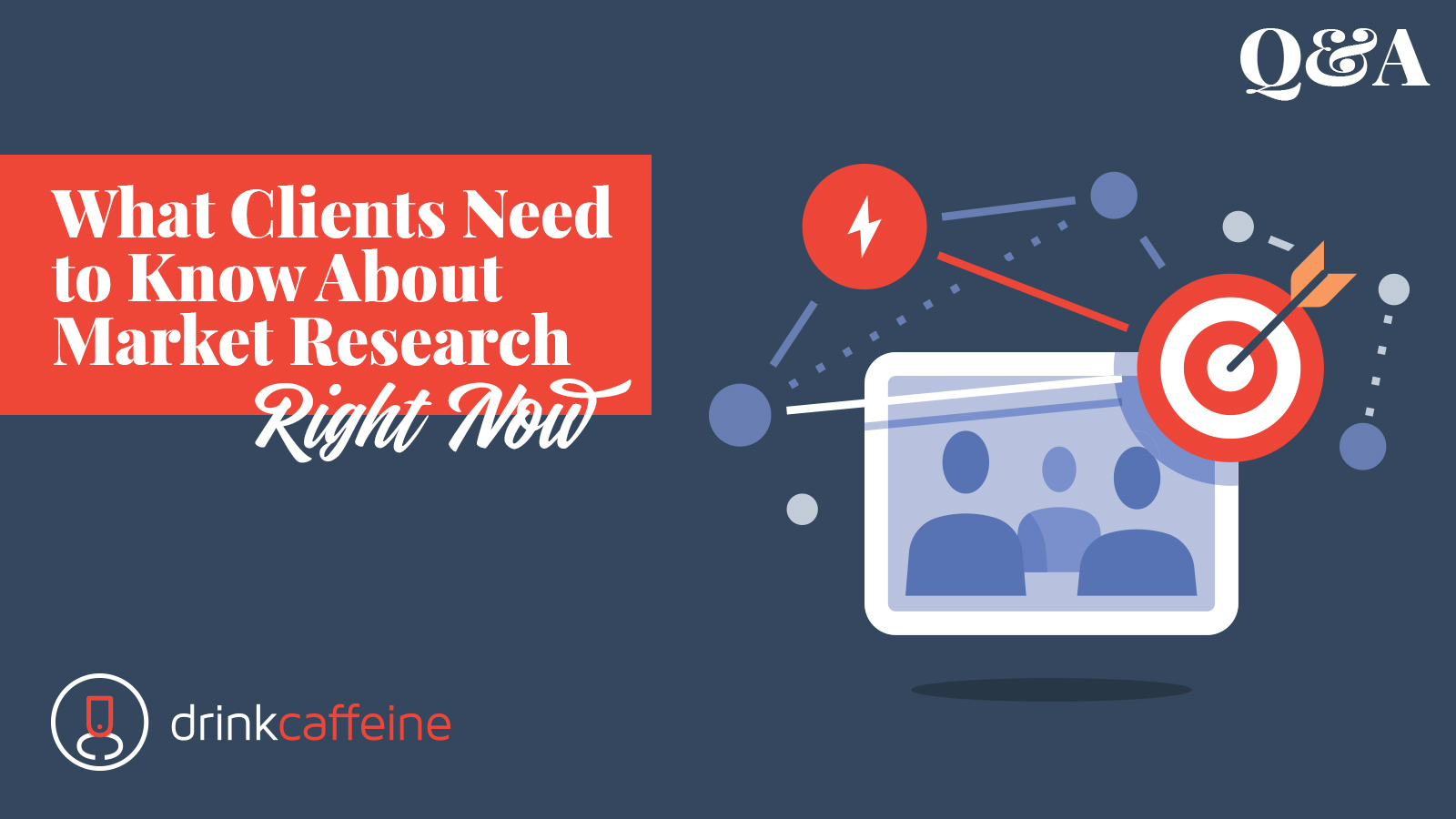Approximate reading time: 2.5 minutes
Michael Vigeant is the CEO of Great Blue research. He’s a 25-year veteran of consumer and B2B research and a longtime ally of drinkcaffeine. He knows things. That’s why we interviewed him.
DC: What should brands know about research right now?
A: Research is not an external function or luxury. It’s how business is done today – hard information flowing into decision-making in real time. Especially now, it‘s important to keep measuring what needs to be measured.
DC: Give an example.
A: We work with public power utilities – which are often under attack for being insensitive to ratepayers – and we offer them a subscription-based research service that gives them a steady flow of ratepayer data and insight. It enables them to stay close to the consumer power market.
DC: A lot of research firms are licensing and merchandising their data.
A: There’s definitely a shift toward licensing. Some other firms are still out there selling research studies or white papers. But large-bore, wide-lens, nonspecific studies are for background. What’s in the foreground is clients with specific business problems. The data we collect needs to be vertically focused enough to do that.
DC: Talk about the pandemic and the impact on market research.
A: I think we’ve figured out the new normal. People are home more. They’ve learned how to adapt. Work goes on and research goes on. The move toward online platforms was already happening. The pandemic just accelerated it.
DC: Does this mean phone-based surveys are dead?
A: Not at all. Our Call Center is as busy as ever. Clients need to talk to customers and prospects to understand them as people, and there’s no substitute for voice-to-voice contact. For example, if you text your spouse a question and the response is “Fine,” it can easily be misinterpreted because you can’t hear tone. A verbal response could be totally different.
DC: What about traditional focus groups? Is the pandemic a torpedo for them?
A: In-person focus groups are waning and will continue to wane. But in-person focus groups have value for the same reason phone surveys do: there’s no substitute for reading body language, vocal tone, facial expressions, and human chemistry. We’ll just do focus groups in a COVID-19 way, with distancing, masks, and other measures.
DC: What’s your assessment of Zoom as a focus group platform?
A: It’s good for focus group recruitment because it’s easier to say yes to. It’s weather-proof. It’s flexible and fast. You don’t need big incentives because you’re not asking someone to get in a car and go to a focus group facility.
DC: Any downsides?
A: You have to deal with distractions at home. Yes, I mean kids. And for the moderator, there’s less control. Plus, people on Zoom often tend to just sit there because they’re conscious of themselves and reluctant to contribute.
DC: What do clients forget about research that they should remember?
A: Listening to people is the most powerful way to sell to them.
When you are ready to leverage research to grow your brand, contact us or Michael Vigeant at Great Blue Research.


